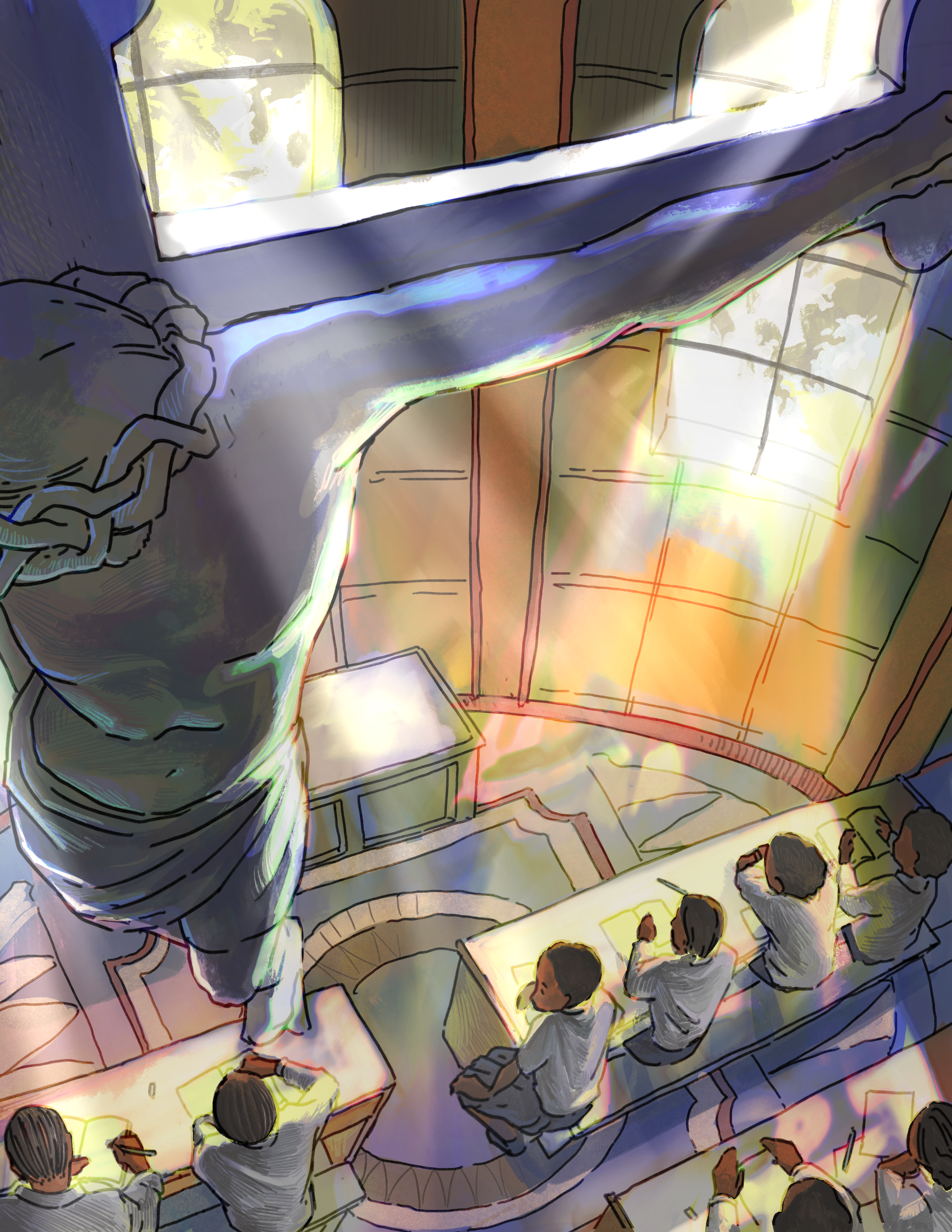Though Portuguese missionaries first established the Catholic Church in the Democratic Republic of the Congo (DRC) in 1491, it was only under Belgian colonial rule in the late 1880s that missionaries arrived en masse, founding schools and hospitals and converting Congolese citizens. Today, nearly 96 percent of the DRC’s population is Christian, and around half are Catholic. Unsurprisingly, the Catholic Church plays an enormous role in shaping the social and political conditions of the DRC. Particularly in the 21st century, following President Mobutu Sese Seko’s more than 30-year reign, the Congolese Catholic Church has accelerated its activism.
By monitoring elections, criticizing corruption, and mediating political conflicts, the Catholic Church provides invaluable support to the DRC as a third-party watchdog. For instance, in the DRC’s 2018 presidential election, the Church had over 40,000 observers monitoring polling places in an attempt to verify elections. In this case, the Church legitimated state authority and cultivated stability. However, in the education sphere, the Church is not merely a watchdog. Rather, by serving as an administrative body, the Catholic Church functions as a quasi-government authority, impairing state strength in the process.
Strong, democratic states are imperative for long-term prosperity and stability. The Catholic Church’s noble administration of education has crowded out the state’s role in the space, weakening the country, deterring democratic maturation, and in some cases, actively harming citizens. The DRC would be stronger, more stable, and more unified had the Catholic Church prioritized supporting state-run public schools rather than extending its power and influence.
Today, the state is symbolically the central actor in public schooling. However, religious networks (predominantly Catholic ones) effectively manage 75 percent of the public schools in the DRC. Consequently, unclear governance structures in the education sphere create a “negotiated nature of statehood” between the DRC government and religious institutions. For instance, in 2017, the DRC’s Ministry of Education relaunched the Provincial Committee of Education to deliver decisions on education strategy and governance. However, across provinces, the Committee has proven unable to effectively exercise its power: Rather than submit to state authority, the Catholic Church leverages personal relationships with individual committee members to resolve issues around regulations and budgets. In doing so, the Church has blurred the lines of governance and decision-making.
Even more concerningly, the Catholic Church has demonstrated a willingness to openly defy state authority. In 2008, after the 2006 Congolese Constitution guaranteed free and compulsory education, the Urban Commission for Educational Services in Kinshasa declared a Catholic school fee illegal. Yet, this ruling was not effectively communicated or obeyed by anyone. Parents have continued financing around 80 percent of necessary educational costs.
Mobutu’s attempt to nationalize religious schools in 1974 also underscores the state’s weakness in the face of the Catholic Church. A totalitarian, kleptocratic ruler himself, Mobutu sought to nationalize Catholic schools in the DRC with an undeniably flawed plan: He attempted to replace religious symbols with himself as the Messiah, and he was partly motivated to undertake this effort in order to quell student protests. While Mobutu’s motives were problematic, the failure of his attempt to increase state power over education is nonetheless telling. Facing an economic crisis, the DRC’s nationalized education system failed without religious networks’ financial and personnel support. In 1977, Mobutu reached an agreement with the Catholic Church for religious institutions to retake control of the country’s education system. While the state’s weakness and reliance on the Church were not the fault of religious networks, the DRC may have developed more responsibility over the education of its citizens had the Church worked to empower the government’s education system to operate independently. Instead, state-run public schools continue to compete with their Catholic counterparts for students and teachers.
One may argue that the inability of the state to implement a comprehensive education system necessitates the Catholic Church and other religious institutions to step in to fill in the gaps. In this view, Catholic schools educate youth who would otherwise be uneducated, so the present system is superior to nothing at all. However, schools governed by religious institutions are actively exploiting citizens through arbitrary and unregulated school fees. One survey found that in 2015, “20% of the fees raised at school level were transferred to a ‘solidarity fund’ in the general Church budget.” The misappropriation of funds for the enrichment of Church institutions rather than the betterment of schools directly harms families.
Even so, according to a 2021 UNESCO report, “Churches argue that if the State would properly fulfill its role, pay all teachers decently and increase the state allocation for [education offices] and schools, they would not have to raise school fees or escape state regulations.” However, religious schools impede the growth of state-run education by competing with public schools for students and teachers. While Catholic schools may provide valuable assistance historically and presently, their services are thus invariably flawed. Their consistent clash with state authority and misaligned interests with the government exhibit their damage to state legitimacy.
To build a stronger and more democratic state, a shift away from education administration by the Catholic Church is urgent and essential. In all sectors, but particularly in education, the Catholic Church should work towards a future where the state may govern independently of its assistance. For the nation to flourish, the Church must realign its priorities toward selfless support of the growth of public institutions rather than the maintenance of its own power.
